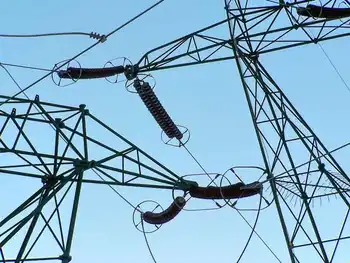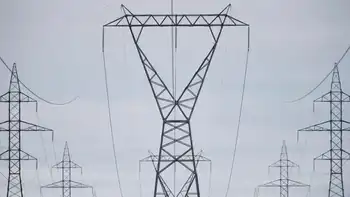Neighbors of nuclear plant sue over leaks into groundwater
The residents who filed the suits rely on private wells for their drinking water and fear the tritium, a radioactive isotope of hydrogen, could contaminate the wells and pose a long-range health risk.
"It's a scary thing because you use water on a daily basis for everything," said Wendy Sheck, a member of one of the 11 families who jointly filed a lawsuit recently in Will County.
The lawsuit contends four leaks of tritium that have occurred near the plant since 1996 have reduced the value of their property.
A similar but separate federal lawsuit was filed recently in U.S. District Court in Chicago by three couples who live near the plant, about 50 miles southwest of Chicago. That suit, however, asks for class-action status for what could be thousands of people who live within 10 miles of the site.
Both suits name Braidwood operator Exelon Corp. and two of its divisions, Exelon Nuclear and Commonwealth Edison Co.
The suits follow disclosures made late last year that tritium leaked on several occasions from discharge pipes carrying water from the nuclear plant to the Kankakee River.
But an Exelon spokesman said the levels of tritium released into the ground aren't harmful.
"The levels of tritium are well below levels where any health effects have ever been observed," said Exelon spokesman Craig Nesbit.
Exelon did not report leaks from the pipes that occurred in 1996 and 1998 because there was no requirement to do so. Leaks that occurred in 2000 and 2003 were reported as required by more recent disclosure laws.
"We have never in any instance violated any reporting requirement," Nesbit said.
Some neighbors, though, said they were unaware of any leaks until the company reported last November and December that higher-than- normal concentrations of tritium had been found in groundwater near the underground pipe system.
If he had known of the tritium sooner, "we would have moved somewhere else," said Michael Sheck, Wendy's husband. The couple and their 14-year-old daughter, who have been drinking bottled water since learning of the tritium spills, live within about 1,500 feet of the discharge pipes, but are about a mile from the nuclear plant.
Both lawsuits seek financial damages for the declines in their property values because of the tritium spills and ask that Exelon pay for water filtration systems. The federal lawsuit also wants the company to pay for a medical monitoring program to watch for long- term health problems.
Related News

Zapping elderly brains with electricity improves short-term memory — for almost an hour
LONDON - To read this sentence, you hold the words in your mind for a few seconds until you reach the period. As you do, neurons in your brain fire in coordinated bursts, generating electrical waves that let you hold information for as long as it is needed. But as we age, these brain waves start to get out of sync, causing short-term memory to falter. A new study finds that jolting specific brain areas with a periodic burst of electricity might reverse the deficit—temporarily, at least.
The work makes “a strong case” for the idea that out-of-sync brain waves in…





